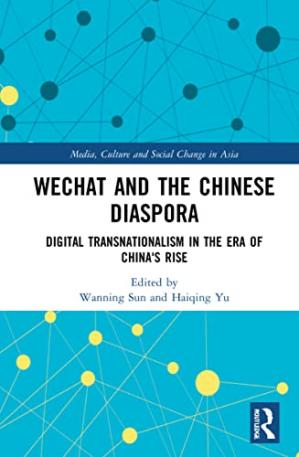
WeChat and the Chinese Diaspora: Digital Transnationalism in the Era of China's Rise
Product Description
WeChat (the international version of Weixin), launched in 2012, has rapidly become the most favoured Chinese social media. Globally available, equally popular both inside and outside China and widely adopted by Chinese migrants, WeChat has fundamentally changed the ways in which Mandarin-speaking migrants conduct personal messaging, engage in group communication and community business activities, produce and distribute news, and access and share information. This book explores a wide range of issues connected to the ways in which WeChat works and is used, across the world among the newest members of the Chinese diaspora. Arguing that digital/social media afford a great degree of individual agency, as well as a collective capacity for sustaining an ‘imagined community’, the book shows how WeChat’s assemblage of infrastructure and regulatory frameworks, technical capabilities, content and sense of community has led to the construction of a particular kind of diasporic Chinese world, at a time marked both by China’s rise, and anxiety about Chinese influence in the West.
Wanning Sun is a Professor of Media and Communication at University of Technology Sydney, Australia.
Haiqing Yu is an ARC Future Fellow and Professor of Media and Communication at RMIT University, Melbourne, Australia.
WeChat and the Chinese Diaspora
Product Description
WeChat (the international version of Weixin), launched in 2012, has rapidly become the most favoured Chinese social media. Globally available, equally popular both inside and outside China and widely adopted by Chinese migrants, WeChat has fundamentally changed the ways in which Mandarin-speaking migrants conduct personal messaging, engage in group communication and community business activities, produce and distribute news, and access and share information. This book explores a wide range of issues connected to the ways in which WeChat works and is used, across the world among the newest members of the Chinese diaspora. Arguing that digital/social media afford a great degree of individual agency, as well as a collective capacity for sustaining an ‘imagined community’, the book shows how WeChat’s assemblage of infrastructure and regulatory frameworks, technical capabilities, content and sense of community has led to the construction of a particular kind of diasporic Chinese world, at a time marked both by China’s rise, and anxiety about Chinese influence in the West.
Wanning Sun is a Professor of Media and Communication at University of Technology Sydney, Australia.
Haiqing Yu is an ARC Future Fellow and Professor of Media and Communication at RMIT University, Melbourne, Australia.
WeChat and the Chinese Diaspora